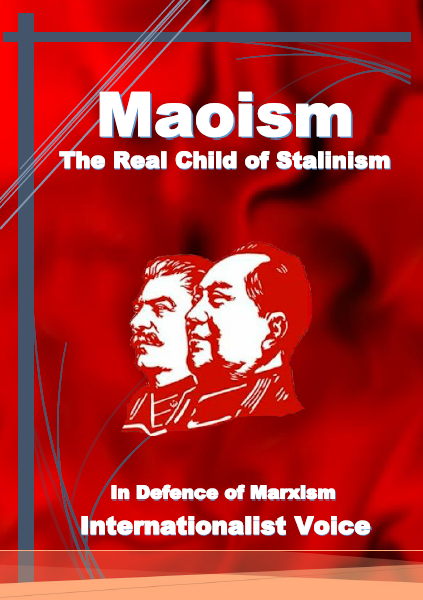Abolishing Wage Slavery or Organizing the Exploitation of Workers?
“It is not a question of what this or that proletarian, or even the whole proletariat, at the moment regards as its aim. It is a question of what the proletariat is, and what, in accordance with this being, it will historically be compelled to do.”[1]
Recently, the bourgeois judiciary annulled transfer of ownership of the Haft Tappeh Sugarcane Agro-Industry Company to the private sector, and the state is to regain ownership of the company. The propaganda tribunes of the right and left of capital, governmental and non-governmental, snatched the lead in the competition to break the news of this great victory headline. Fars News Agency reported on the determination of the judiciary, and the World of Economy announced the return of Haft Tappeh sugarcane to the treasury. The young newspaper spoke about the sweet return of Haft Tappeh. The imperialist propaganda agencies of the BBC, Radio Farda and VOA etc. reported this remarkable victory. From the Trotskyists to the Stalinists, from the syndicalists to the Hekmatists and from…, all emphasized this brilliant and historic victory. Even those who previously opposed the transfer of the company in the form of shares to the workers – and who believed that the government should transfer the company to the workers without receiving any money – forgot their earlier demagoguery and announced that Haft Tappeh had planted hope in the hearts of the working class and showed the way forward [2]. In the political milieu and in social media, everyone has been offering his or her congratulations to the workers of Haft Tappeh in order to be recorded in history and not fall behind the caravan [3]. The fundamental question that arises is whether a legal change of company or factory ownership is truly a historic victory for the working class.
Can a distinction be drawn between legal forms of company or factory ownership – i.e., private or public – in terms of the exploitation of workers? Does private or public ownership make a fundamental difference to the living conditions of workers? Now that the company is going to be government-owned, will the workers’ job security be ensured? Do government-employed teachers have job security? If state ownership is followed by job security, why have we seen teacher protests in recent months about job security and improved living conditions in most cities? Is not the government itself bankrupt? Ensuring job security in the case of government ownership is nothing more than an illusion. The legal transformation of property has no effect on workers’ living conditions and job security; rather, it is the working-class struggle that can lead to better job security and living conditions for workers.
Contrary to the illusions of the left of capital, the crisis that economic institutions have suffered and the recession that has crippled factories are not the result of “incompetent and corrupt management” but are rooted in the inverted capitalist system, whose goal is only profit. Capital itself, in order to better accumulate capital, wants good and worthy management of economic institutions. The important point is that the bankruptcy of industries is not limited to peripheral capital, but rather it is due to the crisis of capitalism. Bankruptcy of factories and companies can be seen in the metropolis capital too, in European countries and in North America. Although the centre of the economic crisis in 2008 was the US, the waves of economic crisis were visible even in Japan. As a result of the economic crisis, Japan’s auto exports fell by more than 60 percent, leaving thousands unemployed in one of the world’s industrial hubs.
All the leftist tendencies unanimously declared that this victory strengthened the position of the workers so that in the steps that followed, the workers would take care of all the affairs and management of the Haft Tappeh Company by exercising workers’ self-management. All of them announced that the workers of the Haft Tappeh Company could show the way. All the leftist tendencies encourage workers to make sacrifices; to rebuild bankrupt factories and institutions; to organize their own “exploitation” (on their terms); and to guarantee the process of capital accumulation. All these sacrifices made by workers for the sake of capital are also described as collective defence of workers’ job positions, in an attempt to confront the scenario of unemployment and economic misery. Is it possible to advance the goals of capital any better than this?
In our articles entitled “Workers’ Self-Management Means Organizing Workers’ Self-Exploitation” [4] and “Seize Power or Seize the Factory?” [5], we have already shown that when capitalism is the ruling system and there is no dual power in society, Workers’ control, Workers’ self-management is not only in the direction of spreading illusion but it also will simply create confusion in the anti-capitalist struggle, distort the class struggle and make a part of the working class complicit in the bourgeoisie. Furthermore, if workers assume the role of employer, this collective employer is no longer a worker, so the proletarian class identity no longer makes sense to him. It no longer makes sense for him to try to perform a historical task, which is to overthrow capitalism. In our view, worker self-management, no matter what form it takes, is nothing but a delusion and confusion for workers on the way to achieving their class identity. All the gestures aimed at exercising control and self-management on the part of workers from the left will only serve to divert the working-class struggle from its main course and put it on a sterile path. In the face of the demagoguery of the left of capital, intent on isolating workers in a company or factory, the emphasis on an independent proletarian struggle, along with expansion of cooperation and communication with other industries and sectors, raises the issue of workers’ class identity and the process through which the working class will change from being a class in itself to being a class for itself.
Only when political power is in the hands of the working class can control of the factory be a revolutionary movement in the direction of socialism. As long as capitalism remains the dominant force, workers’ attempts to control the factory and take over its internal affairs will only serve to maintain the capitalist system and wage slavery. The workers will inevitably be engaged in the economic reconstruction of capitalism, despite the fact that the true task of workers is to eliminate the capitalist economy. However, workers’ attempts to fulfil their fundamental duty will be thwarted, i.e., their mission to destroy the capitalist relations of production and establishment of a dictatorship with absolute power over the proletariat on a global scale. The irrefutable truth is that the proletariat is capable of managing production at the global level, not within capitalist relations of production but after the collapse of the productive relations of capitalism. Instead of organizing capitalism in crisis, in order to continue producing surplus value, it is necessary to organize and bring down capitalism in crisis.
Internationalist Voice
16 May 2021
Notes:
[1] The Holy Family by Marx and Engels
[2] Tadarok’s comments before and after the announcement of the cancellation of privatization.
[3] Only the “anti-capitalist workers” did not have such an orientation, and we think their general orientation was correct.
[4] www.internationalist.tk
[5] www.internationalist.tk
Download az PDF














